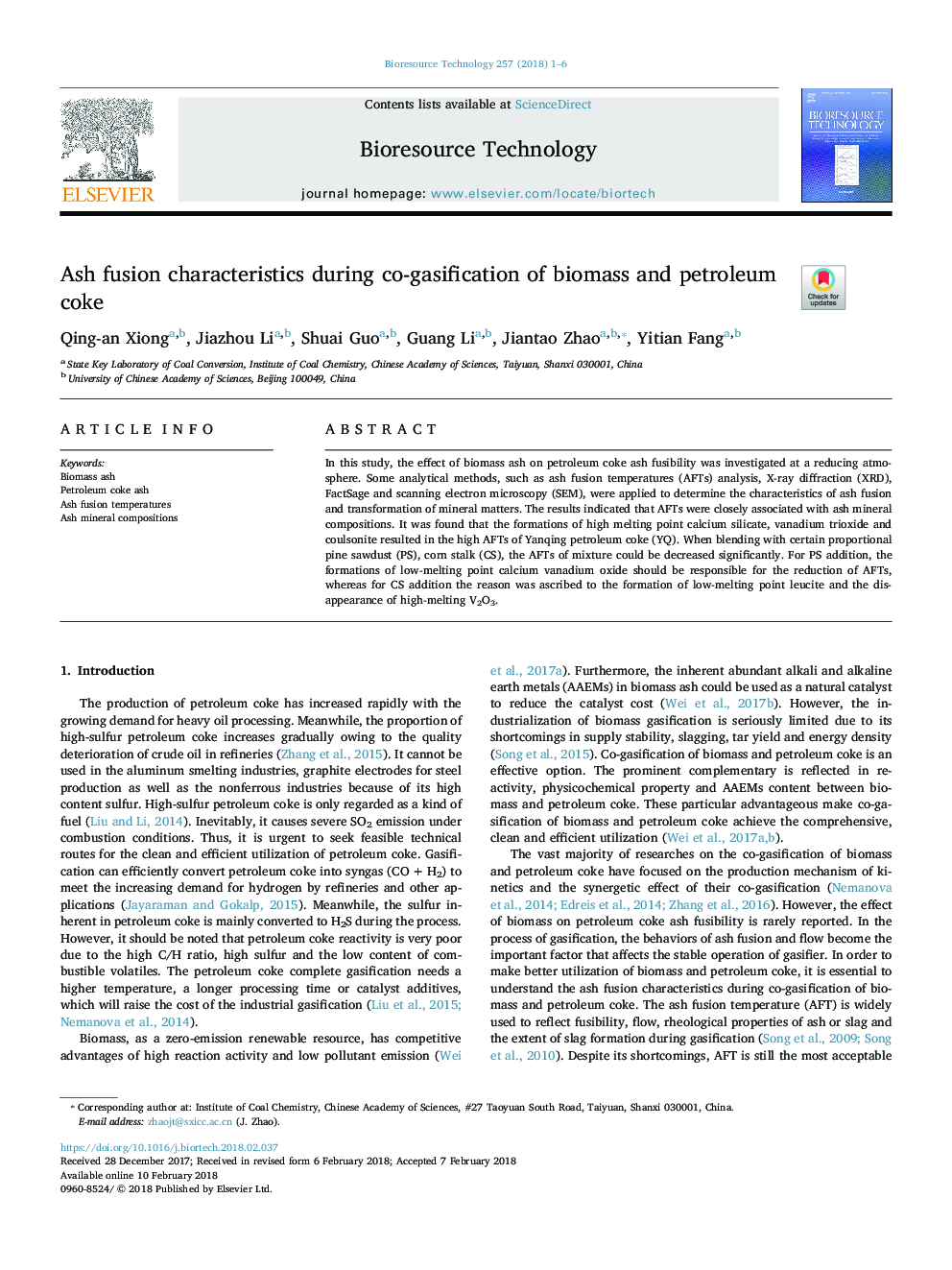| Article ID | Journal | Published Year | Pages | File Type |
|---|---|---|---|---|
| 7067748 | Bioresource Technology | 2018 | 6 Pages |
Abstract
In this study, the effect of biomass ash on petroleum coke ash fusibility was investigated at a reducing atmosphere. Some analytical methods, such as ash fusion temperatures (AFTs) analysis, X-ray diffraction (XRD), FactSage and scanning electron microscopy (SEM), were applied to determine the characteristics of ash fusion and transformation of mineral matters. The results indicated that AFTs were closely associated with ash mineral compositions. It was found that the formations of high melting point calcium silicate, vanadium trioxide and coulsonite resulted in the high AFTs of Yanqing petroleum coke (YQ). When blending with certain proportional pine sawdust (PS), corn stalk (CS), the AFTs of mixture could be decreased significantly. For PS addition, the formations of low-melting point calcium vanadium oxide should be responsible for the reduction of AFTs, whereas for CS addition the reason was ascribed to the formation of low-melting point leucite and the disappearance of high-melting V2O3.
Keywords
Related Topics
Physical Sciences and Engineering
Chemical Engineering
Process Chemistry and Technology
Authors
Qing-an Xiong, Jiazhou Li, Shuai Guo, Guang Li, Jiantao Zhao, Yitian Fang,
